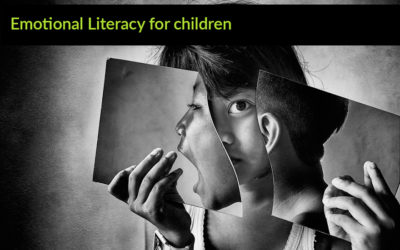We’ve all been there. Or our child has. Needing to learn something but struggling to ‘get it into our head’ or ‘figure it out.’ Why is it sometimes so hard to learn, and other times it seems we aren’t even trying? Is it the topic? Is it that we have the ability to learn some things and not others? Is it the teacher?
What all these questions begin to point to is that learning is about more than we sometimes think. The vast majority of our formal education focuses on increasing our cognitive ability, expanding our store of information, and learning to think in a structured way. But, we are on the cusp of something new and exciting. We are beginning to accept that emotions are a vital element in learning. In fact, emotions are the gatekeeper. When we are experiencing boredom, it does not matter how interesting the teacher tries to make the topic; learning will not occur. That is because the story of boredom is that “nothing I’m hearing is of value to me.” With that thought running through our heads, how can anything else get in? When a child is fascinated by the buttons on their parent’s phone and the effects punching them produces, it is difficult to tear them away from their learning.
There was a time when discipline that instilled fear was considered the most effective way to get children to learn. “Spare the rod and spoil the child,” we used to say. Times have changed, and we now see that this did produce a type of learning but not whole learning. We got better at memorization but not innovative thinking.
If we follow the thread of this idea, we can see that it leads to a new vision of learning built on emotional literacy. For instance, if we want to learn to cook, the emotion of adventure might serve us best; throwing ingredients together in new combinations to see what emerges. Learning to dance may come most easily in the emotion of joy, and memorizing poetry occurs more quickly and deeply in inspiration. Emotional education in schools is one of the ways we can address this directly.
This connection between emotions and learning means that broadening and refining our palette of emotions will make us better learners. Then we can design our learning not just around the subject but include the emotion or emotions that will allow us to absorb it and embody it most thoroughly. As part of building our emotional literacy, we can learn to be purposeful about putting ourselves in the emotion that will support our learning. Or, we can learn to generate that emotional context for our children or students. Fortunately, for our children, we are beginning to see emotional education in schools become more common.
So, how can we learn more about emotions? First, we need to decide in which emotion we want to approach the learning. If we feel obligation, that ‘we should,’ we won’t get far. What about wonder? How would incredulity help? Or maybe fun would allow us to play with emotions the way children play with Legos.
Just as linguistic literacy changed our understanding and ability to navigate life, so too will emotional literacy. Emotions are our fuel for action, and learning is one of the most important actions we engage in as human beings.
Dan Newby is a champion for Emotional Literacy who works with coaches, educators, families, and leaders worldwide through his books, courses, and presentations.
For more on emotional education and literacy, go to www.schoolofemotions.world and join the conversation.




0 Comments